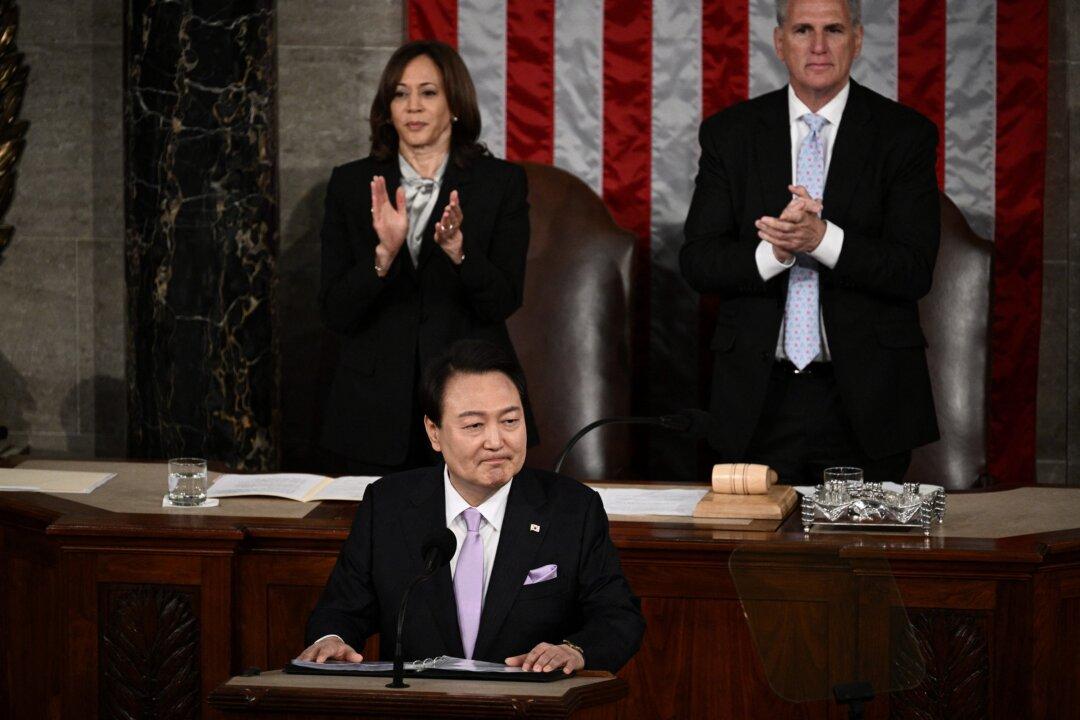The 70-year-old alliance between the United States and South Korea preserved a frail peace that allowed a new nation founded on the principles of free-market democracy to prosper, South Korean President Yoon Suk Yeol said in an address to Congress.
And now, in a “decisive moment” in history, South Korea will use its economic prowess as a “compass of freedom for citizens of the world,” he said during a 45-minute speech in which he quoted U.S. Presidents Ronald Reagan and John F. Kennedy.





